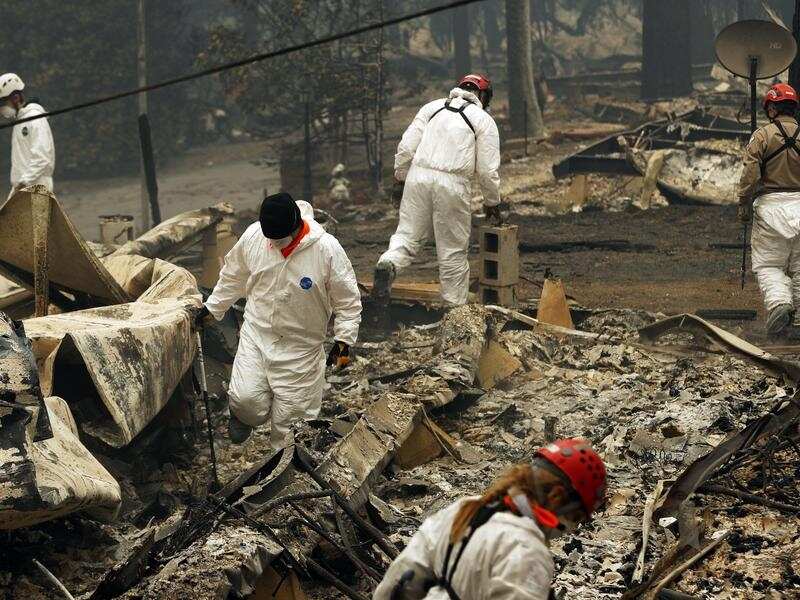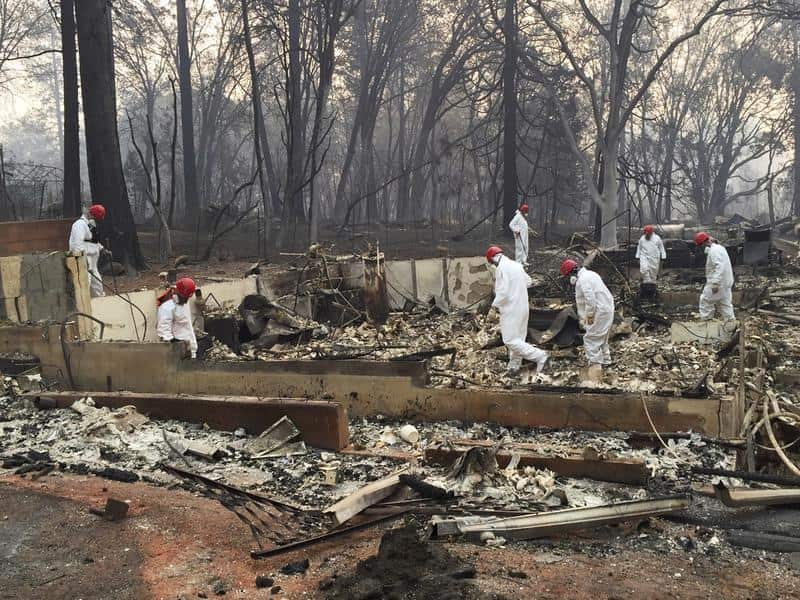The first significant rain in months in northern California has all but extinguished the deadliest wildfire in the state's history but has also raised risks of flash flooding that could hinder teams searching for human remains.
Between 100-150mm of rain was expected to fall through the weekend in areas around the town of Paradise, the community of nearly 27,000 people 280 km northeast of San Francisco that was largely incinerated by the so-called Camp Fire.
The blaze killed at least 83 people and 563 remain unaccounted. Searchers will be pulled out of areas threatened by mudslides.
Searchers will be pulled out of areas threatened by mudslides.

Heavy rains will hamper the search for remains but aid firefighters battling California's wildfires. Source: AAP
The rains, which in some areas were likely to be accompanied by winds of up to 75km/h, raised risks of ravines turning into rivers of mud.
The fire has burned across 62,000 hectares of the Sierra foothills and is 85 per cent contained. The number of people unaccounted for, which has fluctuated widely over the past week, declined by 307.
The number of people unaccounted for, which has fluctuated widely over the past week, declined by 307.

Search teams combing through burned-out areas, looking for human remains in California. Source: AP
The Camp Fire incinerated 13,503 homes in and around Paradise. The cause of the fire remains under investigation.
The state is undertaking the largest single wildfire clean-up operation in its history to remove toxic and radioactive ash and debris at burned home sites, said Eric Lamoureux from the Governor's Office of Emergency Services.
Butte County says evidence from recent fires in California showed that some destroyed homes and property contained "high and concerning levels of heavy metals, lead, mercury, dioxin, arsenic and other carcinogens.
Some property may have the presence of radioactive materials."
Share


